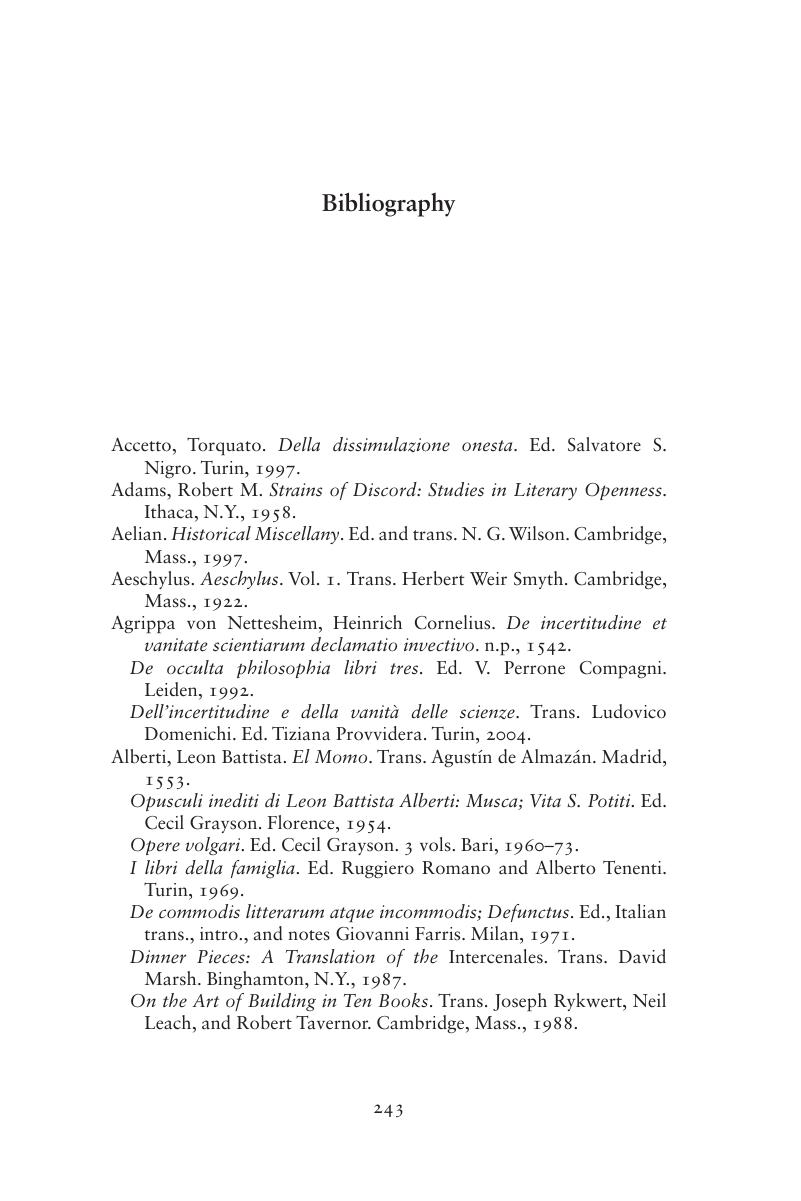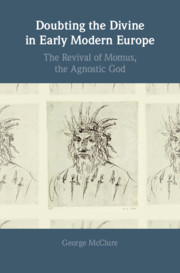Book contents
- Doubting the Divine in Early Modern Europe
- Doubting the Divine in Early Modern Europe
- Copyright page
- Contents
- Preface
- 1 The Classical Tradition
- 2 Renaissance Antihero: Leon Battista Alberti’s Momus, the Novel
- 3 Momus and the Reformation
- 4 The Execution of Giordano Bruno
- 5 Milton’s Lucifer
- 6 God of Modern Criticks
- 7 Conclusion: Momus and Modernism
- Bibliography
- Index
- References
Bibliography
Published online by Cambridge University Press: 18 June 2018
- Doubting the Divine in Early Modern Europe
- Doubting the Divine in Early Modern Europe
- Copyright page
- Contents
- Preface
- 1 The Classical Tradition
- 2 Renaissance Antihero: Leon Battista Alberti’s Momus, the Novel
- 3 Momus and the Reformation
- 4 The Execution of Giordano Bruno
- 5 Milton’s Lucifer
- 6 God of Modern Criticks
- 7 Conclusion: Momus and Modernism
- Bibliography
- Index
- References
Summary

- Type
- Chapter
- Information
- Doubting the Divine in Early Modern EuropeThe Revival of Momus, the Agnostic God, pp. 243 - 262Publisher: Cambridge University PressPrint publication year: 2018



